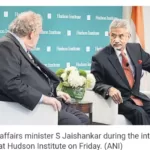As the year approaches its end, the Supreme Court of India is gearing up to deliver a series of pivotal verdicts and directions, with the impending retirement of two distinguished judges. Justice Ravindra Bhat, whose illustrious tenure as a Supreme Court Judge spans four years, is set to retire on October 20, 2023. Concurrently, Justice Sanjay Kishan Kaul, with over six years of distinguished service on the bench, is scheduled to retire on December 25, 2023.
These two retiring jurists have played pivotal roles in two landmark Constitution benches, each tasked with addressing critical constitutional inquiries. The first of these benches deliberated on the abrogation of Article 370, which accorded special status to Jammu and Kashmir. The second bench centered its attention on the legal recognition of same-sex marriages in India.
In the case of same-sex marriages, a Constitution bench, comprising Chief Justice of India DY Chandrachud, Justice Sanjay Kishan Kaul, Justice S Ravindra Bhat, Justice Hima Kohli, and Justice PS Narasimha, conducted exhaustive arguments and reserved its verdict in May of this year.
Anticipated to be unveiled by October 20, coinciding with Justice Ravindra Bhat’s retirement, this verdict holds profound significance, arriving five years after the historic judgment decriminalizing homosexuality in India—an anniversary celebrated on September 6, 2023.
Moreover, nearly four years subsequent to the abrogation of Article 370, a five-judge Constitution bench of the Supreme Court assessed a set of pleas challenging the central government’s decision to revoke the special status of Jammu & Kashmir in August 2019.
This bench, comprising Chief Justice DY Chandrachud, Justices Sanjay Kishan Kaul, Sanjiv Khanna, BR Gavai, and Surya Kant, after an extensive discourse spanning sixteen days, reserved its verdict on September 5. The impending retirement of Justice Sanjay Kishan Kaul in December adds an element of anticipation to this long-pending case.
In addition, the contentious provisions of the Prevention of Money Act, which were upheld by the Supreme Court in 2022, are currently under scrutiny. Justice Sanjay Kishan Kaul leads the bench designated to review the 2022 judgment. The court will assess whether the judgment sufficiently addresses the concerns raised in the petitions and whether a larger bench should reevaluate the matter.
Furthermore, Justice Kaul and Justice Bhat preside over other cases of immense importance, promising significant directives and developments before their retirement.
Among these cases are the issue of 33 per cent women’s reservation in local body elections in Nagaland, the question of whether women can be physically summoned by the Enforcement Directorate for investigation, and the implementation of the NALSA women’s integrated help system in all states and union territories. Justice Kaul’s bench has also addressed issues such as lawyer strikes and judicial appointments.
Meanwhile, Justice Ravindra Bhat’s bench has been engaged in various crucial cases, including investigations into police encounter killings, custodial killings, the powers of a Special Investigation Team (SIT), and the validity of Assam Government’s rules regarding reservations in medical colleges.
Given recent incidents of violence within court premises in the National Capital, Justice Bhat and his fellow judges have issued directives aimed at ensuring safety and preserving the sanctity of the court. Reports on security measures and digitization are expected by October 10, 2023, underscoring the court’s commitment to upholding a secure and efficient judicial environment.







